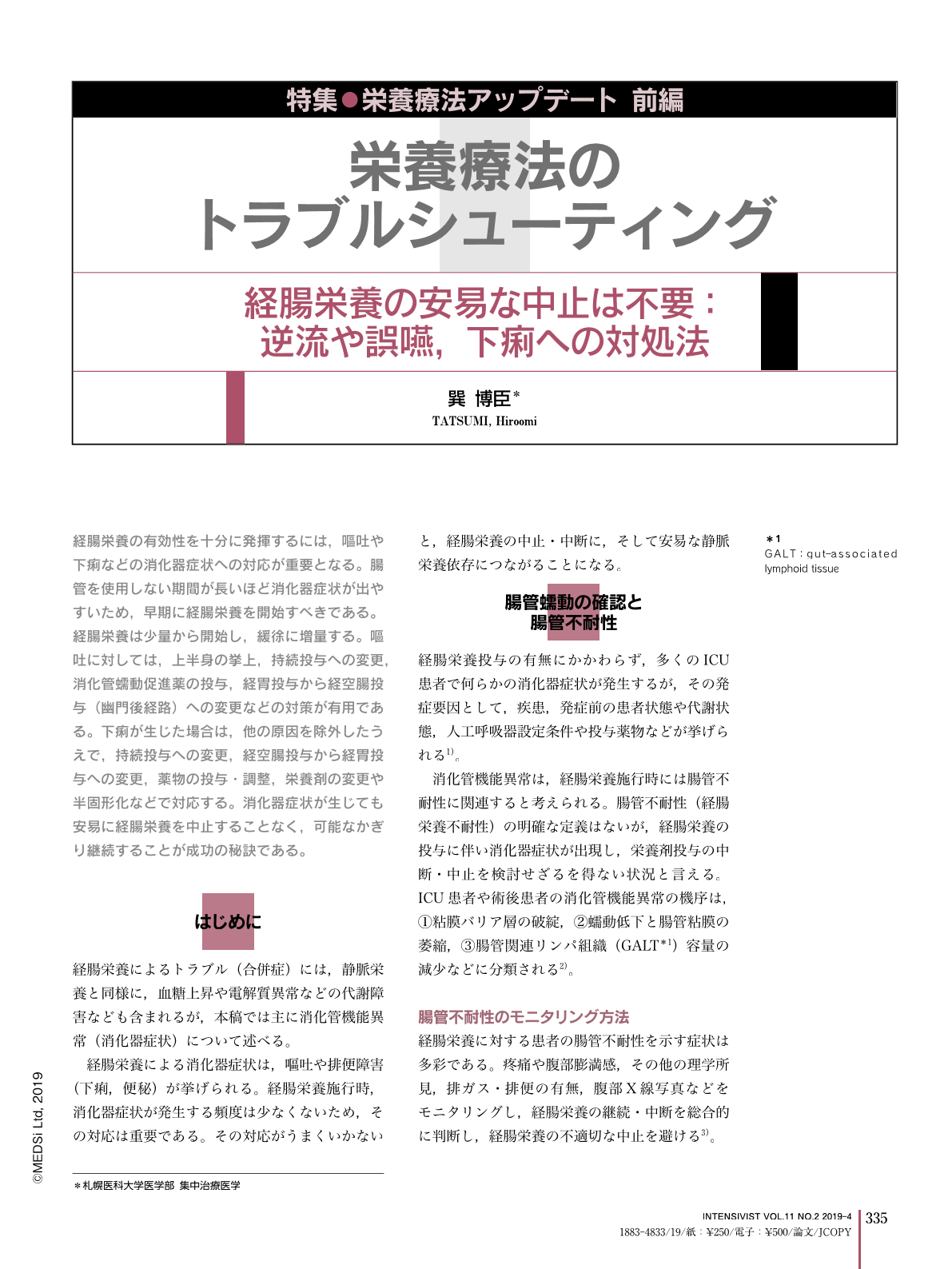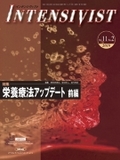Japanese
English
- 有料閲覧
- Abstract 文献概要
- 1ページ目 Look Inside
- 参考文献 Reference
- サイト内被引用 Cited by
経腸栄養の有効性を十分に発揮するには,嘔吐や下痢などの消化器症状への対応が重要となる。腸管を使用しない期間が長いほど消化器症状が出やすいため,早期に経腸栄養を開始すべきである。経腸栄養は少量から開始し,緩徐に増量する。嘔吐に対しては,上半身の挙上,持続投与への変更,消化管蠕動促進薬の投与,経胃投与から経空腸投与(幽門後経路)への変更などの対策が有用である。下痢が生じた場合は,他の原因を除外したうえで,持続投与への変更,経空腸投与から経胃投与への変更,薬物の投与・調整,栄養剤の変更や半固形化などで対応する。消化器症状が生じても安易に経腸栄養を中止することなく,可能なかぎり継続することが成功の秘訣である。
The effectiveness of enteral nutrition can be followed by the occurrence of gastrointestinal symptoms such as vomiting and diarrhea. Since gastrointestinal tract symptoms tend to occur more frequently as the intestinal tract is unused for a longer time, enteral nutrition should be started as soon as possible. Enteral nutrition usually commences at a slow rate and gradually increases. Patients with vomiting can be treated initially with measures such as raising the head of the bed, changing to continuous administration, administration of a gastrointestinal peristaltic agent, and changing from gastric feedings to jejunal feedings (postpyloric). Patients who develop diarrhea must be evaluated to exclude other causes of diarrhea. After this evaluation, the diarrhea may be relieved by changing to continuous administration, changing from jejunal feedings to gastric feedings, administration / adjustment of medications, change of nutrition formula, and semi-solidification. One of the most successful approaches is for enteral nutrition to continue as long as possible without interruption, even if gastrointestinal symptoms occur.

Copyright © 2019, MEDICAL SCIENCES INTERNATIONAL, LTD. All rights reserved.


